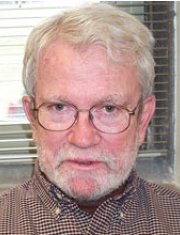
Photo courtesy of Princeton University
John M. Murrin, professor of history emeritus at Princeton University, died on May 2, 2020, after contracting the COVID-19 virus. Murrin received his PhD from Yale University in 1966 under the direction of Edmund S. Morgan. He taught at Washington University in St. Louis from 1963 to 1973 before moving to Princeton, where he remained until his retirement in 2003.
Murrin was an extraordinary scholar, teacher, mentor, and adviser whose enduring impact is most obvious in more than 50 published essays, a form that he mastered and to which he was devoted. Murrin’s scholarship ranged widely across the Atlantic and Anglophone world from the 17th to 19th centuries. He is remembered for his wit, humor, generosity, kindness, and particularly for his enthusiasm about the truly diverse scholarship of the early Americas.
Murrin’s lasting influence is clearest in his decades-long development of Anglicization, the concept that, particularly after about 1715, the British North American colonies became highly effectively integrated into the British Empire. As a result, they constructed a transatlantic and British imperial identity. Key aspects and practices of British society, politics, and culture were replicated in the northern colonies and imitated in the southern colonies. The post-1763 imperial crisis was, therefore, in Murrin’s words, “countercyclical.” It occurred because a deep Anglicization convinced many white male Anglophone property holders in the 13 colonies that they were fully British and entitled to all the liberties post-1688 subjecthood entailed. What was viewed as the British imperial state’s violation of their British liberties eventually radicalized them. American colonists, then, did not declare independence because they had developed a distinct American identity that made British rule insupportable. Only Britain, not the colonists, John Murrin would explain to his undergraduates, saw something distinct called America.
Murrin explored Anglicization, political thought and ideology, and the development of colonial and revolutionary society in several essays that are considered essential to the field. In 2018, Oxford University Press published 11 of his most crucial essays treating the American Revolution and the early Republic in Rethinking America: From Empire to Republic, which received several glowing reviews. Rethinking America set out Murrin’s Anglicization thesis and, relatedly, his belief that the three major historiographical schools competing to explain the American Revolution—the Imperial, Progressive, and Whig schools—scholarship that often ignored each other, would benefit from respectful engagement and an effort at synthesis. Like many of his other essays, those collected in Rethinking America also demonstrated an eagerness to cross methodological and specialist boundaries, and showed that good political history also has to be good social, cultural, and economic history. They warned against a scholarly narrowness that divided North American and early United States history into three distinct areas of study—the colonial, revolutionary, and early Republic periods—whose specialists were increasingly not conversant with each other.
Murrin brought the same intellectual capaciousness to his teaching and advising. He directed over two dozen PhD dissertations treating wide-ranging topics such as rape in colonial America, Native American politics during the American revolutionary era, masculinity in the southeastern borderlands, and the Townshend Acts crisis in Massachusetts. His undergraduate courses on colonial America and the American Revolution often drew over 100 students each year due to his reputation as a spellbinding lecturer and devoted undergraduate teacher.
Murrin’s mentoring was not limited to his students. He was devoted to the community of scholars of the Atlantic world and the early Americas. He served on the council of the Omohundro Institute of Early American History and Culture and was president of the Society for Historians of the Early American Republic. But Murrin most treasured the Philadelphia Center, later renamed the McNeil Center for Early American Studies. He was a long-serving member of the McNeil Center’s advisory council and a fixture at its Friday seminars. The McNeil Center annually awards the John Murrin Essay Prize to the best essay published in its journal Early American Studies to honor Murrin’s scholarship and mastery of the essay form.
Andrew Shankman
Rutgers University
Tags: In Memoriam North America

This work is licensed under a Creative Commons Attribution-NonCommercial-NoDerivatives 4.0 International License. Attribution must provide author name, article title, Perspectives on History, date of publication, and a link to this page. This license applies only to the article, not to text or images used here by permission.
The American Historical Association welcomes comments in the discussion area below, at AHA Communities, and in letters to the editor. Please read our commenting and letters policy before submitting.
Comment
Please read our commenting and letters policy before submitting.






